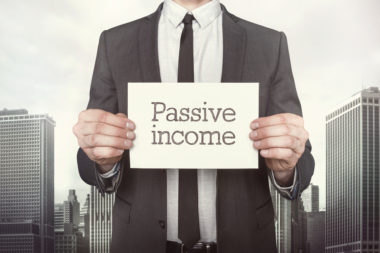I’m a twenty-six year old millennial, and I cannot wait to retire.
I know I have a long way to go, I’m not even halfway through my working years, but I’m already planning. I’m reading advice from professionals, researching my investments, and diving deep into the world of personal savings and fiscal responsibility.
Through all my research, I have yet to find any reason to doubt my ambition. From all the evidence I’ve compiled, the most common word of advice is to start saving what you can as soon as you can. And so I have.
But I know there are still many years to go before I will ever reach the retirement mark. Retiring means living on a fixed income, with little to no monetary growth, and a lot of potential stress over paying bills and making ends meet. I may not have experienced it myself, but I’ve seen it personally as my parents begin to plan their lives after retiring. Will I be able to experience the same level of financial stability as my Baby Boomer parents in about 30 to 40 years?
Although the future of retirement and investing is not set in stone, there are still plenty of ways to start saving up and planning for your latter years in life. Here is some of the best advice I’ve come across since diving into the world of retirement.
Table of Contents
Always Keep Debt in Check
As in any financial situation, the first aspect of your finances that needs to be evaluated is your debt. Are you struggling with your credit score? Are you sitting on maxed out credit cards?
Before you consider saving up for retirement, you’ll need to figure out how to best manage and control your debt. This will also give you some personal insight into your spending habits. Once you retire, your fixed income will struggle if you’re living too far outside of your means.
Evaluate your current income and spending habits. Where do you spend the most? How can you budget to better control your debt and potentially start saving up? US News suggests starting with your largest debt and highest interests rates; tackling your biggest hurdles first before they turn into mountains.
If your debt is something less severe, such as a mortgage on your home or a car loan, then your concerns will have to be more long term. If you purchase a home on a 30 year loan, but you’re less than 30 years from retirement, you’ll need to consider increasing your payments or downgrading your home.
Once you retire, debt becomes even more of a hassle than during your younger, working days. Controlling it now will mean a potentially less stressful financial future and will guarantee you have more money to spend on enjoying your freedom.
Study Your Options
For the majority of people, your first introduction to the world of retirement savings will be through your employer and their 401K plans. These tax-free investment savings accounts are sometimes matched by the company, and are capped annually by the government. In 2016, the cap was $18,000 annually. Depending on what your employer offers, it is always best to look into your options.
For example, many 401K plans have company matching potentials, meaning if you put in a percentage of your income (normally around 3 to 4 percent or more), your company will match that amount either dollar to dollar, or by half. Every company is different, and some require that you stay with the business for an extended period of time, but these matching opportunities are essentially free money. You’re saving up and your company is directly contributing to your retirement plan too.
There are two different types of 401K plans in the United States: a 401K and a Roth 401K. Roth plans are taxed along with your paycheck prior to the money being put into the account, and are tax free when drawing money out after you’ve retired. Regular 401K plans are taxed (as income) when you take money out of the accounts, but are tax free when you put the money in as you save up.
Since the future tax rate of withdrawing from your 401K is impossible to determine, there’s a chance that choosing a Roth option is the most practical for you. However, there are plenty of reasons to choose a traditional 401K as well, such as in the circumstance where your current income far exceeds your planned income for retirement. If you’re living in a higher tax bracket now, then a traditional 401K is your best bet according to Time Magazine: Money. It is also sometimes possible to choose both, as a way to keep your retirement portfolio diverse in the case that any tax laws change in the future.
Stay Vigilant on Investments
Similar to keeping your retirement portfolio diverse, you’ll need to make sure your investments stay diverse as well.
Many 401K plans are split between bonds and stocks, which means your retirement fluctuates with the stock market. However, the stock market – despite all its dips and turns – is always moving up. Don’t let crashes scare you into withdrawing your retirement. Even after the 2008 stock market crash, within a year the market was rising yet again. Investments always increase over time.
As many financial investment gurus will tell you, it’s important to keep your portfolio fresh, balanced, and diverse. Simply buying into the average markets will net you some gain in investments, but will not prove to be exceptional.
Although a lot could be said on the subject of investing, in terms of your retirement your investments will be your only source of growing income. Although it’s not wise to put all your eggs in the investment-basket, and it’s certainly best to avoid aggressive investing, putting in a portion could prove to be beneficial once you’ve switched over to a fixed income. Learning to play the stock game now could help you when you get to that point down the road.
Plan to Make Some Changes
This is a common thread to the retirement story: downsizing your home. For many retirees, downsizing is not only a convenience to their lifestyle, but it’s a financial necessity. Taxes on large properties and high interest rates on mortgages will slowly eat up a retirement income.
Similarly, you’ll have to make some lifestyle changes. Spending outside of your means will no longer be an option, and will quickly lead you down the road to massive debt.
It’s also important to remember that with retirement often comes a decrease in health. Chronic illness and other health conditions plague the older generations, and without private health care (you’ll be using that Medicare service you’ve been taxed for over the past 50 years) your medical costs will start adding up fast. Add in potential assisted living facilities, and your monthly living expenses will continue to grow. You can use online resources to help determine your future long-term care plan, but be sure to not rule out health issues when you start planning your retirement.
Although healthcare can be stressful, there’s no reason you should let the “what if’s” hold you back from enjoying your new-found freedom in retirement. You’ll have more time to travel, visit your friends and family, and more time to do what you love.
For me, I’m mostly excited for the chance to sleep in and read every book I can get my hands on. Although I have a long ways to go before I can retire, I plan on investing and saving up as much as possible to ensure my older self can enjoy all the luxuries the world has to offer.
As you continue to consider the future and what it has to hold, start saving up now and chipping away your debt to make your future life less stressful. Your retirement will be well worth the wait and years of service.
For more information on credit scores, including tips and guides for raising your score, visit our credit score resource and learning center.





